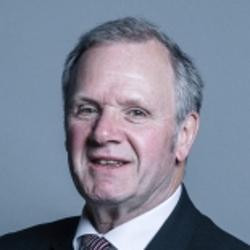Teachers: Qualifications
(asked on 4th July 2023) - View SourceQuestion to the Department for Education:
To ask His Majesty's Government how many teachers at state-funded schools in England do not have a teaching qualification.
Information on the school workforce in England, including qualified teacher status (QTS), qualifications held and for state-funded secondary schools, the subjects taught, is published in the school workforce in England statistical publication. A link to this information can be found here: https://explore-education-statistics.service.gov.uk/find-statistics/school-workforce-in-england.
QTS is considered desirable for teachers in most schools in England. In some schools, including academies, free schools, and independent schools, QTS is not a legal requirement. Academies have a fundamental freedom to employ talented teachers who do not necessarily have QTS.
Most teachers in all schools, including academies, have QTS and have undertaken Initial Teacher Training (ITT). The most recent data from November 2022 shows 12,739 full time equivalent teachers in state funded schools in England did not have QTS, which is equivalent to 2.7% of teachers. This information is in the attached table 1. Information on the qualifications held by teachers is collected in the annual census. However, the information collected does not identify teaching qualifications specifically. Information on the highest qualification of teachers is in the attached table 2. The percent of secondary school teachers with a relevant post A level qualification in the subject they are teaching is is in the attached table 3.
Timetabled teaching is reported for a typical week in November, as determined by the school. It does not cover an entire year of teaching. If there are variations in timetabling across the year, this is not covered in the data available to the department.
There are 27,000 more teachers now than there were in 2010. The quality of teaching is the most important in school factor in improving outcomes for children, especially for those from disadvantaged backgrounds. Evidence is clear that high quality professional development can lead to improved pupil attainment.
The department has invested in transforming training for teachers and head teachers. Every teacher and head teacher now has access to high quality, evidence based training and professional development at every stage of their career, starting with ITT.
By 2024, a reformed ITT provider market will be delivering quality assured training leading to QTS that places a greater emphasis than ever before on embedding structured practice into courses, ensuring trainees are ready to thrive in the classroom.
A new system of higher quality training provider partnerships will be supported by £36 million to introduce new quality requirements, including better training for mentors and the delivery of new, cutting edge, intensive training, and practice activity. Every teaching school hub will be involved in ITT to ensure that training places are available across the country.
The department wants to continue bringing great people into teaching and have introduced bursaries worth up to £27,000 tax free and scholarships worth up to £29,000 tax free, to attract talented trainees in subjects such as mathematics, physics, chemistry and computing.
In addition to scholarships and bursaries, the department are offering a Levelling Up Premium worth up to £3,000 tax free for mathematics, physics, chemistry and computing teachers in the first five years of their careers who choose to work in disadvantaged schools. This will support recruitment and retention of specialist teachers in these subjects and in the schools and areas that need them most.

